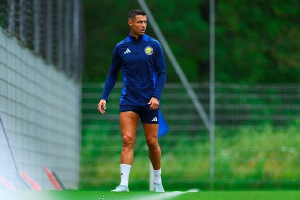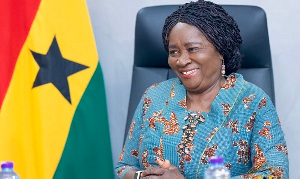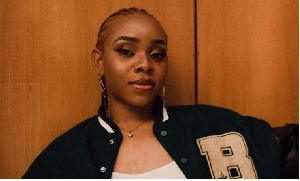Opinions of Monday, 27 March 2023
Columnist: Charles Yeboah
Did the Minority MPs disappoint Ghanaians?
Your response to the screaming headline will depend on the side of the coin from which you look at the issue, that happened before the approval of Ministerial nominees the opposition NDC's hierarchy urged its MPs to vote against.
Another school of thought should as well have room to shower praises on independent, fearless adherents of democracy.
Before the vetting committee sat to grill new appointees by the Head of State, H. E Nana Akufo Addo to replace outgoing Ministers, the political office of the National Democratic Congress (NDC) issued a strong warning to its representatives in Parliament not to endorse the nominees. They claimed the government was over-bloated, and must reduce the number of appointees. Merging
different sectors can do for Ghana if the government was to cut cost in times of financial distress, where the citizens are going through austerity measures.
One wondered why the minority side allowed their members to sit around the vetting table to scrutinise the suitability of the minister to be, instead of boycotting the exercise altogether?
Or they were not paid per diem?
Or they were not fed at the taxpayers' expense?
Or they did not have other assignments to undertake in the interest of their constituents and mother Ghana?
The votes were eventually cast in Parliament on Friday, March 24, and the Majority NPP MPs added to their number an appreciable NDC MP votes to approve the disputed candidates.
Now the leadership of the NDC party are up in arms against their people, saying that their parliamentarians have disappointed them. Some Ghanaians, including journalists and social commentators, are of the same opinion. Some even assume to be speaking the minds of all Ghanaians.
They say, “The NDC MPs did not vote as the Ghanaian voters wanted” (sic).
Why should we not join the small objective voice that now applauds the triumph of democracy vis-à-vis the current hang Parliament we are experimenting with?
MPs do not necessarily represent their political party in Parliament. Some even joined the party after studying the political terrain and learned how a particular demography will be in their favour before picking forms on the ticket of the party.
That aside, there are revered individuals in the country, in their communities, such as Traditional leaders and Religious leaders who can influence the opinion of an M P to vote in Parliament.
Then there is also the monetary aspect. Some, or almost all the MPs are business people. They need extra income to meet the demands of their dependents.
Do you expect an NDC MP with links to Hon. KT Hammond who is going to the Trade Ministry to vote against his nomination?
Or, the Akan maxim: wo biribi ne kwaakuo a wo kɔtɔkorɔ nnka soro is only applicable outside the business environment?
(If you relate to the monkey, your stick does not get stuck on top of the tree).
The same scenario can be said of those with alliance with the Agric Minister to be, Chieftaincy Minister to be, and the rest.
If Ghana is indeed practicing parliamentary democracy, then Chairman Asiedu Nketia and Secretary Fiifi Kwetey of NDC headquarters should not call their MPs traitors when they vote with their conscience.
The Democratic process should not be that rigid always. A principled position by one political party to whip its MPs to walk a partisan line and oppose everything the sitting government proposes will likely take the shine out of the composition of Ghana's current hang Parliament.
When New Patriotic Party Member of Parliament crossed the carpet and voted for NDC's candidate RT Hon. Speaker Alban Bagbin to steer the affairs of Parliament, did the NDC party not celebrate their win?
My native Goka people say: deɛ nsuo yɔ ke, awia so tumi yɔ bi.
To wit: As it rained, so it will shine.
Why should someone be disappointed here?














